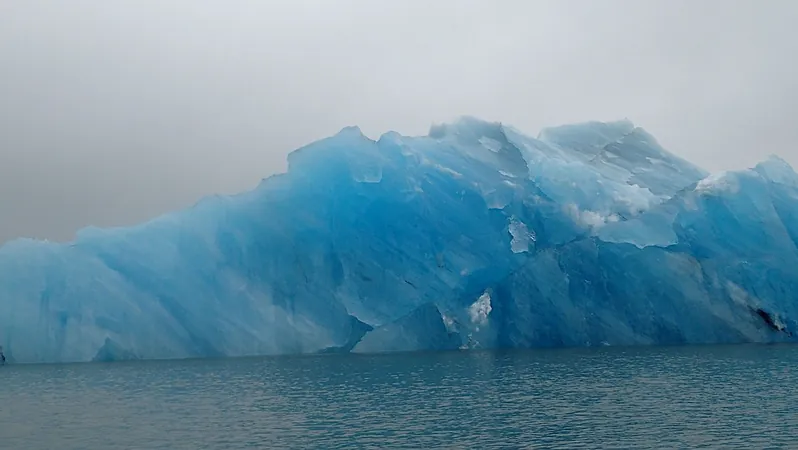
Ancient Glaciers: The Unsung Heroes of Life's Evolution on Earth!
2025-04-07
Author: Wei Ling
Groundbreaking Study Reveals Role of Ancient Glaciers
In a groundbreaking study from Curtin University, researchers have unveiled the pivotal role that massive ancient glaciers played in shaping Earth's surface and fostering the evolution of complex life. These colossal sheets of ice acted like giant bulldozers, dramatically transforming the landscape as they advanced.
Chemical Analysis Sheds Light on Glacier Impact
Through extensive chemical analysis of crystals found in ancient rocks, scientists discovered that as glaciers cut through the earth, they dug deep into the crust, releasing essential minerals that significantly altered the chemical composition of the oceans. This monumental process not only reshaped our planet's geology but also created an environment conducive to the emergence of more complex biological life forms.
Insights from Professor Chris Kirkland
Lead researcher Professor Chris Kirkland from Curtin’s Frontier Institute for Geoscience Solutions explains, "When these massive ice sheets melted, they unleashed catastrophic floods that carried an influx of minerals and chemicals, including uranium, into the oceans." This sudden surge of elements disrupted ocean chemistry precisely as more complex life began to evolve, demonstrating an interconnectedness of Earth’s systems that is often overlooked.
Relevance to Contemporary Climate Change
The implications of this research extend beyond ancient history. Professor Kirkland points out that this study offers a fresh perspective on contemporary climate change. The findings reveal that significant shifts in Earth's climate have historically triggered vast environmental transformations. "This research is a stark reminder that while the planet is resilient, the conditions that support life can change dramatically," he notes.
Lessons for Today's Climate Crisis
Understanding how ancient climate shifts influenced the Earth can provide critical insights into how present-day environmental changes—whether natural or human-induced—might reshape our world. "These events help illustrate that environmental changes have profound and lasting impacts, which is essential knowledge as we navigate the challenges of today’s climate crisis," said Professor Kirkland.
Collaboration and Future Implications
Collaborating with the University of Portsmouth and St. Francis Xavier University in Canada, the team’s findings are set to revolutionize our comprehension of Earth’s climatic and geological history. With the Neoproterozoic era being a focal point of their study, the implications of this research remind us that the story of life on Earth is deeply intertwined with the planet's physical transformations.
Conclusion: Exploring Our Icy Past
As we continue to face modern climate challenges, this research not only highlights the importance of understanding our planet's past but also suggests that the lessons learned from ancient glaciers could guide our efforts to understand and perhaps mitigate today’s environmental dilemmas. Don't miss out on the chance to explore how Earth’s icy past could hold the key to our future!




 Brasil (PT)
Brasil (PT)
 Canada (EN)
Canada (EN)
 Chile (ES)
Chile (ES)
 Česko (CS)
Česko (CS)
 대한민국 (KO)
대한민국 (KO)
 España (ES)
España (ES)
 France (FR)
France (FR)
 Hong Kong (EN)
Hong Kong (EN)
 Italia (IT)
Italia (IT)
 日本 (JA)
日本 (JA)
 Magyarország (HU)
Magyarország (HU)
 Norge (NO)
Norge (NO)
 Polska (PL)
Polska (PL)
 Schweiz (DE)
Schweiz (DE)
 Singapore (EN)
Singapore (EN)
 Sverige (SV)
Sverige (SV)
 Suomi (FI)
Suomi (FI)
 Türkiye (TR)
Türkiye (TR)
 الإمارات العربية المتحدة (AR)
الإمارات العربية المتحدة (AR)